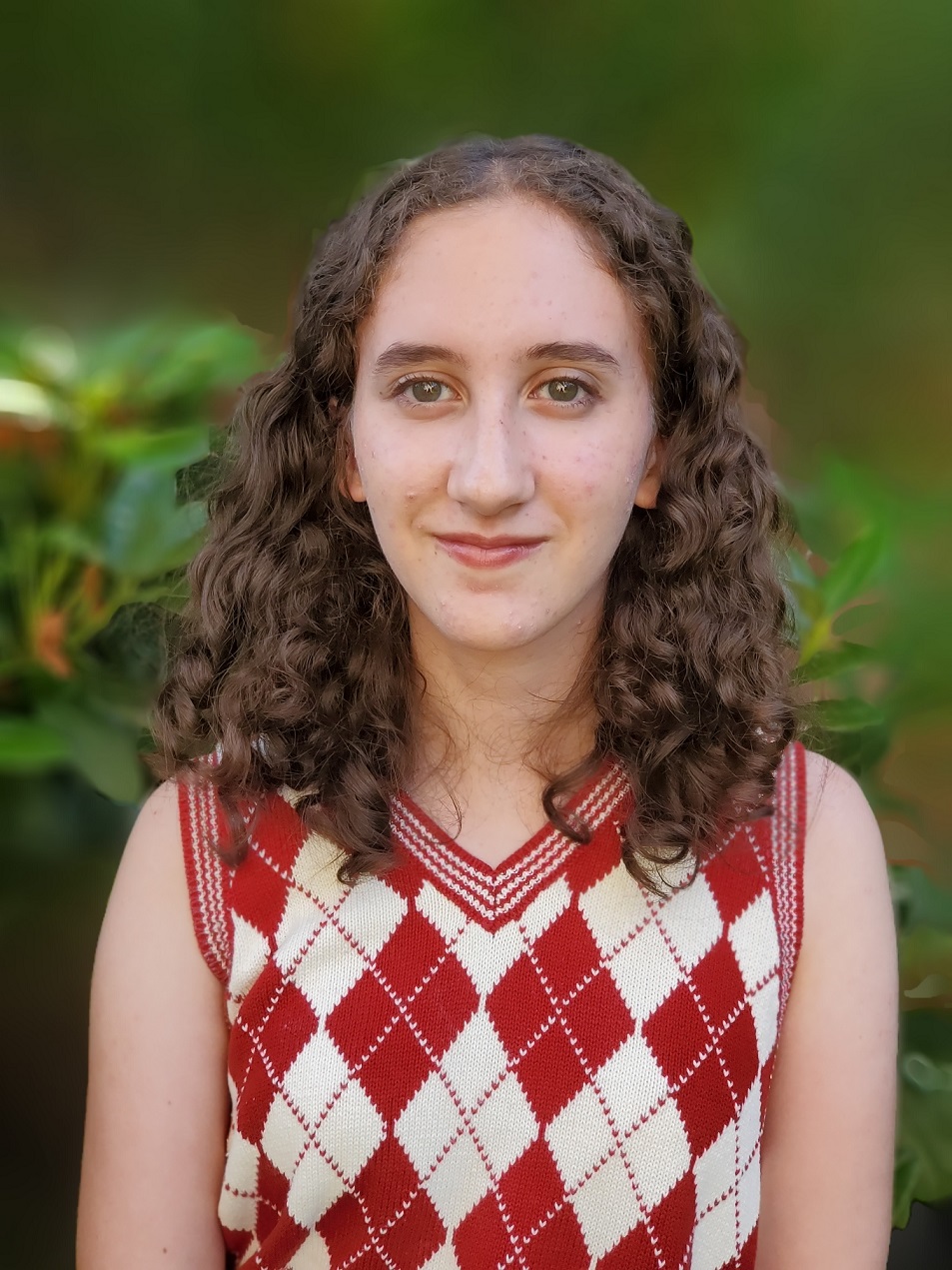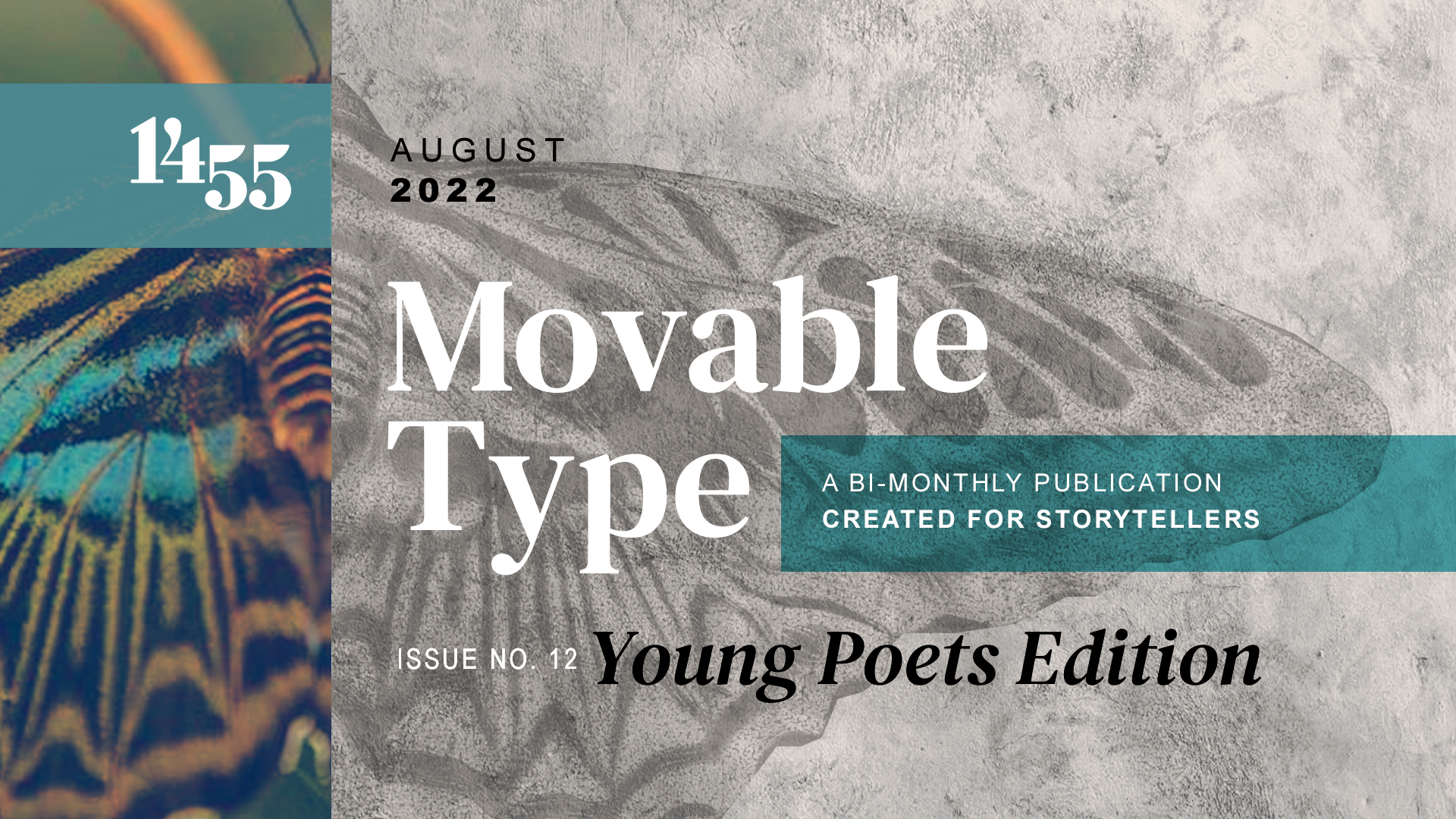Elizabeth Keller
It’s 2020 and I See Henry David Thoreau at a Fair-Trade Coffee Shop
With quotes from Walden
Grand Prize, Category 1: Ages 13-18
I hate being alone. It’s one of the first things
all my friends said they noticed: that there’s a lot
of not-me in my head and its fingernails are far too sharp
for any of our good. It’s June and the lockdowns
are lifted though it’s still only my room I feel safe
- The lightheaded burn of Clorox wipes settles
something in my chest, but I like the smell of matcha lattes
more. I head over to Walden, the only coffee shop
with curbside pickup. I see him there. He’s become
almost a regular. Because of the name, I think. Maybe
when you’ve found a time machine in the woods
or some crazy shit like that the difference between
coffee grinders and steel cookstoves blurs enough
for both to feel like home. I skimmed Walden, the book,
to pass freshman year English. I used to admire
isolation like that. Making everything, even the fingernails,
disappear. Now that I’ve lived it, I’m not so sure. I notice
that Thoreau’s wearing a mask, but it’s woven roughly
out of cattail stalks. He gets his coffee and steps out
into the plaza, arms waving, eyes the simple pinpricks
of a flea. We’re all living and dying, and buried! he shouts.
Talk of the divinity of man! He mumbles something else
about the bravery of muskrats but I can’t quite make out
his point. Now I notice that he’s standing in the middle
of a circle of five spaced-out picnic tables. He’s a preacher
in this church full of pigeon poop and cheap plastic cups
and thirty year old men in flannel jackets, rolled eyes hidden
behind the thick foam of face shields. Everyone’s so far
away. One of the men laughs and points his phone
at Thoreau. This is a charity that hides a multitude of sins,
Thoreau mumbles, confused. Another man chuckles
and does the same. I watch as the flea’s wings
get plucked off slowly, one by one. His cattail mask slips
down his chin. His coffee—cold brew—splatters
onto the concrete. I step forward into the circle, shooting
apologetic looks at the men. I know I’m far too close. I reach
out a hand to Thoreau. His own hands look muddy
with streaks of white. I wonder if he was digging around
in the pigeon poop. I want him to hold me. From the way
the mud hasn’t fully dried I know his hands are warm
and soft. I would let him use my shower. He would whisper
words into my skin: simplicity, cattail. Henry, I say. Come
with me. He doesn’t take my hand. He’s puddled on the ground
and I wonder if fleas have blood. From the desperate city
you go into the desperate country, he says. I want to ask him
how he did it. I don’t. Instead I haul him up by his collar and face
the crowd. The light reflecting through the coffee cups
makes everyone beautiful and the fingernails have become
a good kind of pain. I leave him, standing confused in his cold brew
covered coat, as I walk back to my apartment. I dial
my friends. As the phone rings I find my old copy of Walden
and stuff a page in my mouth, savoring the earthy taste
of the ink as it dissolves on my tongue

I think in the tentative aftermath of the pandemic, everyone’s dealing or has dealt with the effects of isolation in one way or another. There’s more freedom now to exist safely, but it still can feel almost surreal, living in a world that now has been marked with ‘after.’ That feeling of floating strangeness was something I wanted to capture with this poem, both in the use of soft s sounds and the inherently ridiculous premise of running into the historical Henry David Thoreau in the midst of the pandemic. Thoreau isolated himself at Walden for two years, comparable to COVID isolation, but this isolation was voluntary. He concluded, at the end of his time, that the only things people really need are food, shelter, clothing, and fuel. I think for the rest of us, freedom isn’t that simple. My poem explores loneliness and finds that freedom has a lot of human connection embedded in it.
Elizabeth Keller is a senior at Interlochen Arts Academy and is from Vancouver, Washington. Her short stories and poetry have been published in Crashtest and The Interlochen Review. In her free time, she enjoys bad jokes, hugging her cats, and trying to learn to play the pennywhistle.


